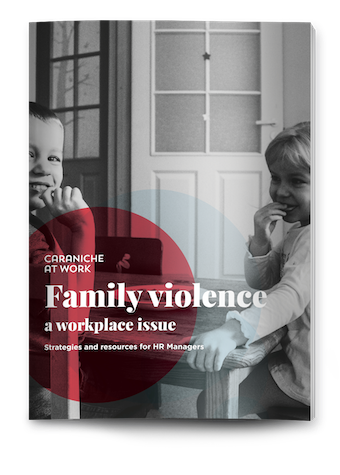
The workplace is one place where asking the question “Are you ok?” can really work. It’s important that both employers and all staff help to create a culture where people feel confident asking and answering this simple yet important question. Besides the legal responsibilities of providing a safe and healthy workplace, these conversations can make a real difference to staff going through a tough time.
R U OK?Day is a national day of action dedicated to reminding everyone to ask, “Are you OK?” and to remember every day of the year to support people who may be struggling with life’s ups and downs.
R U OK?Day is an initiative of national suicide prevention charity R U OK? Their mission is to inspire and empower everyone to meaningfully connect with and support those around them. This year on R U OK?Day they are encouraging everyone to Trust the Signs, Trust your Gut & Ask R U OK?
Find out more about R U OK?Day including resources for workplaces here https://www.ruok.org.au/join-r-u-ok-day
What are they saying?
Do they seem:
What are they doing?
Are they:
What’s going on in their life?
Are they experiencing:
R U OK? have developed four conversation steps to give you the skills and confidence to navigate a conversation with someone you’re worried about.
We can all make a difference in the lives of those who might be struggling by having regular, meaningful conversations about life up’s and down’s.
If you feel like something’s not quite the same with someone you know – there’s something going on in their life or you notice a change in what they’re doing or saying – trust that gut instinct and take the time to ask them “Are you OK?”
You don’t have to be an expert to have a caring, meaningful conversation. Follow R U OK?’s four steps: Ask R U OK?, Listen with an open mind, Encourage action and Check in
Learn more about the signs and how to ask R U OK? at www.ruok.org.au
As team leaders and managers, it’s important to look after staff and reach out to them if there’s something going on in their life or you notice a change, no matter how small, in what they’re saying or doing.
By asking “Are you OK?” you can let your team members know they have support and encourage them to get help if they need it.
Are you a HR manager, team leader or just a great team player? Download resources below to get the conversations flowing in your workplace:
Sometimes conversations are too big for workmates, friends and family. At these times, it can help to call upon these organisations:
Lifeline (24/7)
13 11 14
lifeline.org.au
Suicide Call Back Service (24/7)
1300 659 467
suicidecallbackservice.org.au
Beyond Blue (24/7)
1300 224 636
beyondblue.org.au
SANE Australia
1800 18 SANE (7263)
sane.org

Many of the new tech based EAPs have been making inaccurate claims about traditional EAPs as part of their marketing and promotion.
Read more
Moral injury in the workplace can negatively impact our psychological wellbeing and mental health. Here’s why it matters.
Read more
When choosing how to cultivate wellness in the workplace, it’s never been more important to take an organisation-wide approach. Here’s why.
Read more
Australian workplaces are waking up to the impact of family violence. Caraniche at Work has developed a free report for HR Managers who want to take the lead.